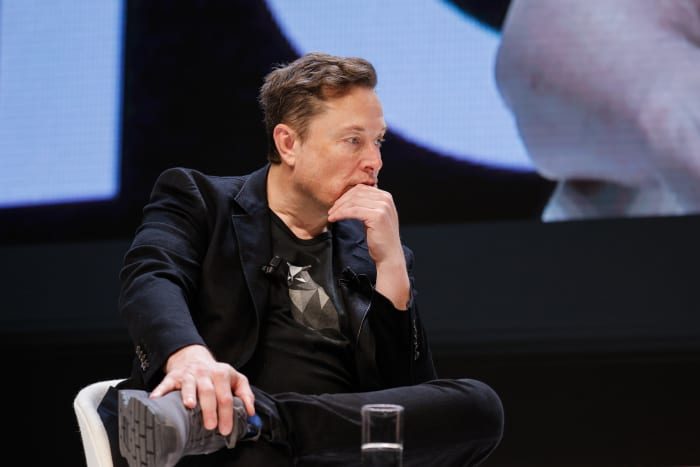The Tesla CEO gave his endorsement of Donald Trump on his social media platform following an assassination attempt on July 13.
Shortly after 6:13 p.m. on Saturday, July 13, former president and presumptive Republican presidential nominee Donald J. Trump was the target of an assassination attempt at his rally near Butler, Pa. The shooting claimed the life of a rallygoer and left the former president and other audience members scathed, while the perpetrator lost his life in the process.
The incident itself caused an immediate firestorm on social media, which rang abuzz with reactionary messages from all corners of society and people all around the world who sent the former president encouraging messages and condemnation of the shooting that occurred.
Amid the chatter came one post on X (formerly known as Twitter) from none other than Tesla CEO and X owner Elon Musk, who used the opportunity to make an announcement that could spell trouble for the future of his EV automaker and “AI and robotics company,” Tesla. (TSLA)
The impact of Elon’s endorsement
“I fully endorse President Trump and hope for his rapid recovery,” Musk said on X about 30 minutes after the incident took place on July 13.
At the time of writing, the post has been viewed 202.8 million times, has around 87,000 replies under it, has been reposted around 409,000 times, and has 2.3 million likes.
Though this is the first time Musk has explicitly shown support for the former president, the post endorsing him is far from the lone post exhibiting his political views.
A weird, rocky relationship
A quick scroll of Musk’s page on X reveals much information about his political leanings, beliefs, and affections; however, the history between Musk and Trump as two human beings has seen its ups and downs.
In a January 2020 interview at the World Economic Forum in Davos, Switzerland, Trump told CNBC “Squawk Box” host Joe Kernen that Musk was one of the world’s “great geniuses” and compared him to other innovative figures like Thomas Edison.
“I was worried about him because he’s one of our great geniuses, and we have to protect our genius,” Trump said of Musk. “You know, we have to protect Thomas Edison, and we have to protect all of these people who originally came up with the light bulb and the wheel, and all of these things.”
However, the relationship between the two is not solely be defined by praise. In July 2022, Musk said Trump was “too old to be” the President of the United States, saying that Trump needed to “sail into the sunset” as he would be 82 at the end of his potential second term. Additionally, he revealed that he was leaning towards supporting Florida Gov. Ron DeSantis for president in 2024.
Trump did not take that suggestion lightly, calling him a “bulls**t artist” and lambasting him on his social media platform Truth Social.
“When Elon Musk came to the White House asking me for help on all of his many subsidized projects, whether it’s electric cars that don’t drive long enough, driverless cars that crash, or rocketships to nowhere, without which subsidies he’d be worthless, and telling me how he was a big Trump fan and Republican, I could have said, ‘drop to your knees and beg,’ and he would have done it,” Trump wrote.
The tone between the two figures has lightened in recent times. In March 2024, Musk was one of a few attendees of a meeting between the former president and other wealthy donors, which led to the Tesla CEO denying any reports of political contributions. He also denied negotiating a potential advisory role in the future Trump White House in May.
In June 2024, Trump said he was “a fan of Elon” and that “he does an incredible job with Tesla.” At a recent Tesla shareholder meeting, Musk revealed that he and Trump “had some conversations” and that the former president was a “huge fan” of the controversial Tesla Cybertruck.
Trump’s boogeyman: electric cars
Though Trump has a somewhat positive relationship with Elon Musk, his policy proposals are stacked against Musk’s major product: electric vehicles.
At a private event attended by lawmakers at the Capitol Hill Club in Washington D.C. in June, the former president spoke out against Biden’s policies regarding electric vehicles, making it clear that he intends to reverse them once in office.
One of the lawmakers at the event, Representative Russ Fulcher (R-ID), told Bloomberg that Trump said, “The whole mandate toward battery and electric is crazy.”
“He said the policy would be entirely reversed,” Fulcher said. “He made it very, very clear that he’s opposed to the policies we’ve got.”
In a section labeled “Platform” on Trump’s 2024 campaign website, one of the 20 policy “promises” that the campaign lists is “Cancel The Electric Vehicle Mandate and Cut Costly and Burdensome Regulations.”
Additionally, a button on the bottom of the web page labeled “Read More About the Trump Republican Platform” links to a 16-page PDF of policy proposals listed under different “chapters.” On page 11 of the document, under “CHAPTER FIVE: PROTECT AMERICAN WORKERS AND FARMERS FROM UNFAIR TRADE,” is a directive labeled “Save the American Auto Industry,” where “Republicans will revive the U.S. Auto Industry by reversing harmful Regulations, canceling Biden’s Electric Vehicle and other Mandates, and preventing the importation of Chinese vehicles.”
Though Biden has enacted a stiff tariff on imported Chinese electric vehicles, the “Biden Electric Vehicle mandate” that Trump and his campaign have repeated as a talking point has been significantly loosened since its first introduction in 2023.
The “mandate” refers to EPA rules that were revised in March, which were looser than those unveiled in 2023. Under the new rules, the administration is targeting at least 56% of new vehicle sales to be EVs by 2032, a figure that was reduced from nearly 67% the previous year.
However, Trump and his allies, including those involved in the Heritage Foundation’s controversial Project 2025 initiative, suggest that anything that does not involve the production of internal combustion engine (ICE) cars isn’t “fair.”
On page 628 of Project 2025’s Mandate for Leadership, economist and Trump Administration US Department of Transportation Deputy Assistant Secretary for Research and Technology Diana Furchtgott-Roth said that in contrast to current standards that dictate a standard of 50.4 miles per gallon by model year 2031, the next administration should “consider returning to the minimum average fuel economy level, specified by Congress for model 2020 vehicles: levels aimed at achieving a fleetwide average of 35 miles per gallon.”
Going back to such standards would disincentivize not only Tesla but also automakers that poured billions in research, like Ford, General Motors, and Honda, from selling electric vehicles in the United States.

Tesla CEO Elon Musk
Richard Bord/Getty Images
A self-inflicted hit on Tesla’s image
Tesla is already suffering from an image problem.
In an April 2024 study conducted by market intelligence firm Caliber, many potential Tesla buyers said that they were turned off from the brand because of the highly polarizing online persona of CEO Elon Musk.
They found that while over 83% of Americans connect Musk with Tesla, Caliber gave the automaker a consideration score of just 31%, which shows that many people would not consider Elon’s EV brand when shopping for an electric car.
“It’s very likely that Musk himself is contributing to the reputational downfall,” Caliber CEO Shahar Silbershatz said.
A July 2 New York Times poll of more than 7,500 of its readers around the country revealed that many associate Tesla with Musk and vice versa and are turned off by the brand because of this connection.
A Times reader named Achidi Ndifang, an IT worker in Baltimore, told the paper that Musk’s racist rhetoric was the main reason he and his family kept their distance from the automaker when it came time to buy an EV
“My mother was seriously debating buying a Tesla,” Ndifang said. “As a Black person, I felt like it would be an insult for my mother to drive a Tesla.”
Another reader, a Seattle-based Microsoft product designer, told the paper that he plans to buy a Volkswagen ID.4 instead of a Tesla.
He reasoned his decision, saying that because in a Tesla, “You’re basically driving around a giant red MAGA hat,” referring to the snap-back baseball caps worn by Trump and his avid supporters.
At the time of writing, Tesla Inc., trading under TSLA on the NASDAQ, was up 4.69% and traded at $259.87 per share.


